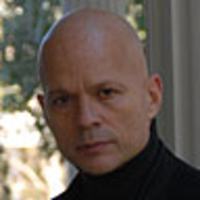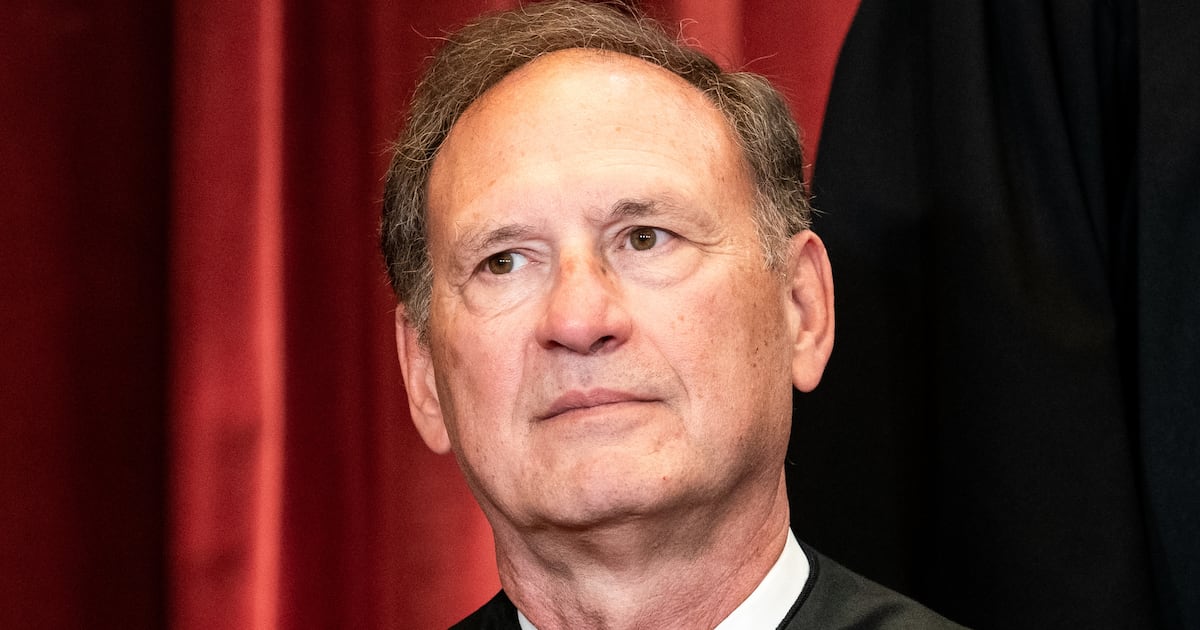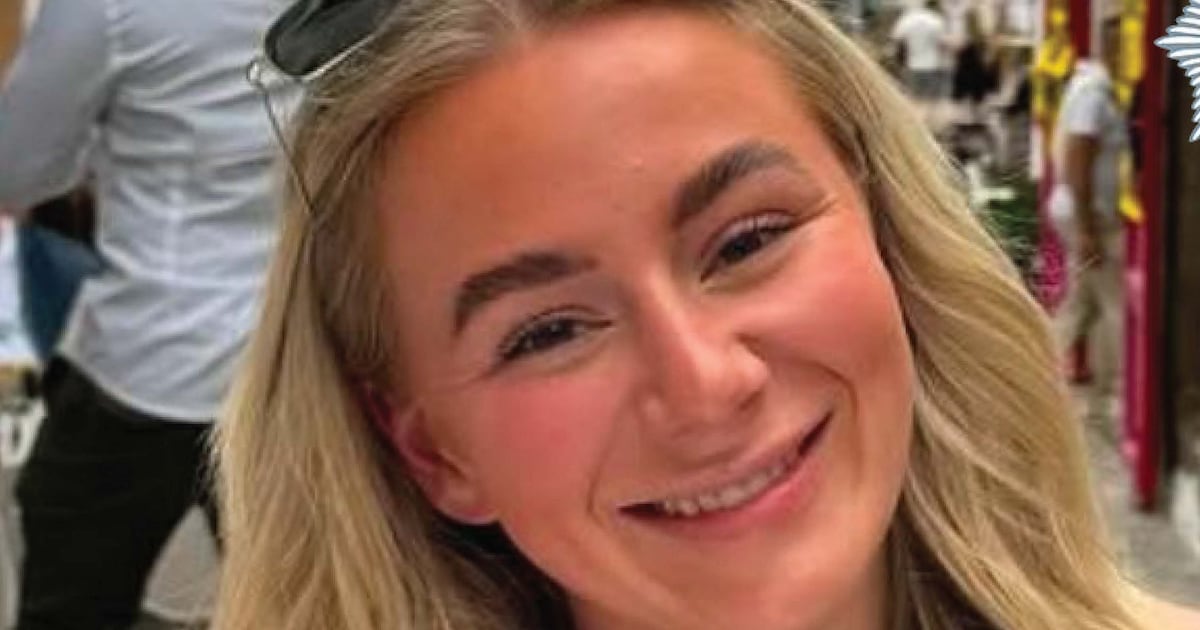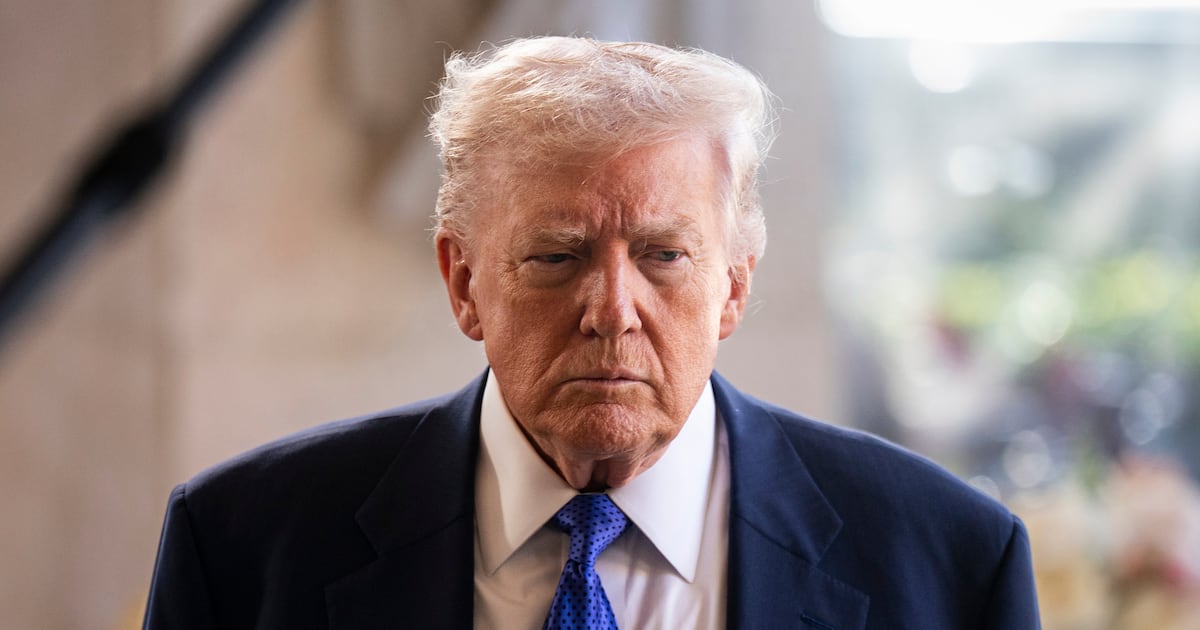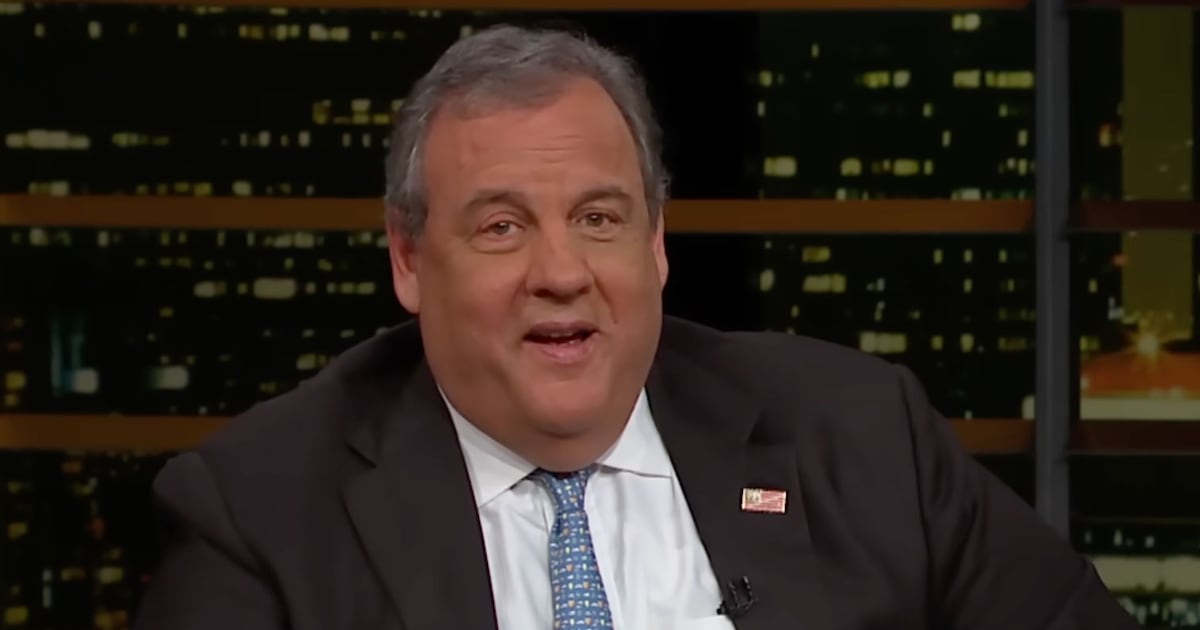
It could be argued that the beginning of the financial collapse from which America is still recovering did not take place in the summer of 2008 on Wall Street, but down in Houston in the fall of 2001, when Enron, the energy conglomerate that also masqueraded as a futures-trading company, presaged all that was to come by committing an act of corporate immolation that destroyed not just a corporation, but lives as well. British playwright Lucy Prebble may not be making that precise argument in her play, ENRON, opening tonight on Broadway, but by reminding us of that Texas-size failure, fueled as it was by the rarified deceit derived from riskier and riskier financial instruments, she has keenly redirected our collective gaze from Goldman Sachs' smooth-talking CEO Lloyd Blankfein back to the late "Kenny Boy" Lay (as he was known to his good friend, President George W. Bush), Enron's own chairman and CEO.
Some might say she has too keenly done so, for Prebble, making her Broadway debut as a playwright at the age of 29 after ENRON's smashing success at the Royal Court and its subsequent move to the West End, has such an over-abundance of theatrical imagination it can border at times precariously close to precociousness. ENRON is no cut-and-dry cut-and-paste job. Prebble punctuates the story with outlandish puppetry and other unexpected imagery, as well a kind of English music-hall levity. Lehman Brothers, for example, is portrayed as a pair of squinty-eyed, squeaky-voiced Siamese twins loping about the stage as they partake in some low-comedy banter.
Do you think [Ken Lay] is living in South America? Well, the local coroner was one of his best friends.
I met Prebble last Friday at Angus McIndoe across the street from the Broadhurst Theatre, where ENRON is being staged. Rupert Goold, the play's director, had called a brush-up rehearsal, and a famished Prebble finally snuck away with me for a late-afternoon snack of fried calamari.
Have you been able to enjoy New York since you've arrived or have you been stuck inside that theater for most of your time here?
I've been here about six weeks now and I have spent a great deal of time inside that theater but I have been able to get out and enjoy New York some. I love the city. It's my favorite city in the world, in fact.
As George Soros has said, "An imperial power in its last throes is always the pleasantest place to live."
I do love an imperial power in its last throes.
Do you miss being in England for the run-up to the election?
I do a bit, actually. I've been reading quite a lot about it the last couple of days. Although there are aspects of it I don't miss. All the bullshit that goes on about it in the English press.
You're from Haslemere, Surrey, which is a stronghold of the Conservative Party, but the Liberal Democrats have made a bit of a headway there in past elections.
I've voted Labour myself, in the past. But basically I am one of the people who is concerned with keeping the Conservatives out. So I'm still deciding whether to vote Labour or Lib-Dem. There are parts of the Lib-Dems' manifesto I quite like. My father was Conservative. I was brought up by a right-wing father and a left-wing mother, which was an interesting dynamic.
Were those the voices you heard in your head as you were writing ENRON?
Hmm… The play is sort of a wrestling of those two sides, I suppose. But I am always drawn to the thing you hate about yourself. There is a bit of me that hates being from a Conservative bastion like Haslemere. I am drawn to exploring the right wing. I want to question it and pull it apart, but also to look at how seductive it is as well as cold and dark.
Do you think of ENRON as a political play?
I do now. I certainly do more so having come here.
Enron President Jeffrey Skilling was aware early on of the power of the virtual—that's the whole concept behind the mark-to-market accounting that he championed. Your first play, The Sugar Syndrome, concerned that same subject—the allure of the virtual—in a totally different way. Its main character was a teenage girl with an eating disorder who went online and convinced a male pedophile that she was an 11-year-old boy, and the resulting friendship that ensued between them when he found out the truth. The virtual is at its root theatrical because it requires the willing suspension of disbelief.
Yeah, that's true. I'm fascinated by that aspect of technology. I'm also very interested in things that don't exist but have power.
What would that be in your life? God?
Exactly.
So you’re an atheist who believes in the power of God.
Yes, which leads me to a fascination with the cult leader, which is in a way what Skilling was at ENRON. The cult leader is the figure who says I am in direct contact with God and also has the capacity to have people believe that and therefore he is able to invoke power over others through nothing. I guess that’s called faith.
The Times Literary Supplement in its review of ENRON likened you to Ben Jonson. Forgive the shadowy monetary pun, but do you think the play is, in fact, derivative of Jonson—especially Volpone? Or do you see its dramatic antecedent in Greek tragedy? You certainly employ a chorus in ingenious ways. Some have even compared it to Shakespeare's Richard III because Skilling's tragedy, like Richard's, is his increasing isolation.
The person I think the play owes most is Brecht. The presentational element. The outright politics. And in Mother Courage, he would just have people start singing something out of nowhere. Quite often he would have the characters breaking the fourth wall as I do in ENRON. I know the play started in England and is now in America, but there is a slightly Germanic quality to it. But, yes, I always had the tragedy of the story in mind.
I've read that you went through a period of purposefully walking through the porno shops of Soho in London as a way to reclaim the space for women. Was writing this play about the macho world of finance—set in Texas no less—part of the same impulse to reclaim territory?
It's exactly the same. You're completely right. I was talking to someone from the finance world when I was working on the play. His theory was that in the 1970s and the 1980s, there was the Kremlin that represented the high wall you weren't allowed to look over, weren't allowed to breach. No one really knew how the Soviet Union worked. But then in the 1990s, it was the financial sector, as it is called, that became this walled-off thing. Most people had no idea of what went on behind it and how that worked. It is that aspect that sparked something in me. I don't like when I feel ostracized.
One of the criticisms I have heard from people who have seen the play—and it does seem to divide people right down the middle—is that the Lehman Brothers shtick comes off as anti-Semitic.
There was a discussion about their using the word "oyish" at one point. The actors have come up with these characterizations. It wasn't written that way. That's probably not necessarily a question for me at this point because it's not script-related. I am aware, though, that some people have had that reaction. But the Jewish guys in the cast told me that they didn't have any problem with it.
At another point in the play, 9/11 is evoked with a stunning visual image and the raining down of paper debris as if from the Twin Towers. I think the effect it has in America is a different one than it had in England. People have come to regard that day with a kind of reverence and here it is plopped down toward the end of a play that has spent two hours seducing us with its irreverence. It is truly jarring. Perhaps that was your intent.
That has been a production decision, how we handle the September 11th imagery. It is certainly something we are aware of and have been looking at during previews. There are two things happening there at that point in the play. Ken Lay is making that speech from the top of the tower in which he compares the collapse of Enron to the collapse of the World Trade Center. I didn't write that. He actually made that speech. That comparison is his. It isn't mine. And there's another thing. We are at the point in the narrative after the analyst has made her speech about the nature of belief and the importance it plays in forming a financial bubble. And then we arrive at that point when the bubble bursts. I felt comfortable using vaudeville and extreme imagery because I felt formally what we were doing was trying to take a journey inside a financial bubble in which things could be not as they appear and be surreal and strange. Then there came a point not only within the narrative of Enron but maybe even within the narrative of America of there being a moment of total bubble bursting. Loss of innocence. Despair. And, yes, tragedy.
But I do feel the difference sitting here in the audience in America when the 9/11 imagery begins. It has become the iconic image of our time, really. When it happened you couldn't get away from the image of it. Every television screen in the world played it over and over. It was burned into our retinae. But now the image has become repressed because of its, I don't know—sacredness. That juxtaposition of it having been burned into our retinae and now our not being able to look at it is one which, though I admire and respect the emotions involved, I find… well… I find it interesting.
Are you afraid of being thought of as an interloper—a young, left-wing woman from Britain writing about American business? Could the work be seen as an indictment?
If that becomes the case—and I was feeling that—then that would make me sad because I love America. I'm passionate about it. Romantic about it. As just that: an outsider. My view of America is one of fascination and interest and is in no way negative.
Well, that was certainly polite of you. You finally are that well-brought-up Haslemere girl no matter how much you regret it being your right-wing home. Alfred, Lord Tennyson liked it much more than you. He spent his later years living and working there and roaming Blackdown hill. He died in Haslemere in 1892. Do you have a favorite Tennyson poem?
The Lady of Shalott. Oh, and Ulysses. I so love that poem, especially the first part of it when Tennyson deals with the idea of restlessness and wanting to go back into battle. It's rather extraordinary to write something that brilliant about old age and have someone young read it and understand it.
As I was watching the Enron financial bubble burst during your play, I was reminded of his line from Mort d'Arthur: "the old order changeth, yielding place to new..." But will the old order ever really change, whether it's on Wall Street or embedded, as it is, in your class system in England? Is it just too old? Too ordered?
I think finally the fundamental issue is really quite simple, and it's the fact that there is a huge divide between the powerful and the powerless and that divide is more about knowledge than about money—knowing how the system operates. It's just so huge, that divide of power and knowledge and access. I think to correct it would take a cultural restructuring. Do we have to go back to something that's more Main Street than Wall Street? I do know that financiers hate that idea of being retrograde, of going backward.
One last question. Do you think Ken Lay is really dead? His heart attack at his Snowmass, Colorado, vacation home conveniently killed him three months before his sentencing, after he was found guilty of 10 counts of securities fraud.
Why? Do you think he's living in South America? Well, the local coroner was one of his best friends. But that's all you're going to get me to say about that.
Kevin Sessums is the author of The New York Times bestseller Mississippi Sissy, a memoir of his childhood. He was executive editor of Andy Warhol's Interview magazine and a contributing editor of Vanity Fair and Allure. He is a contributing editor of Parade. His new memoir, I Left It on Mountain, will be published by St. Martin's Press.
